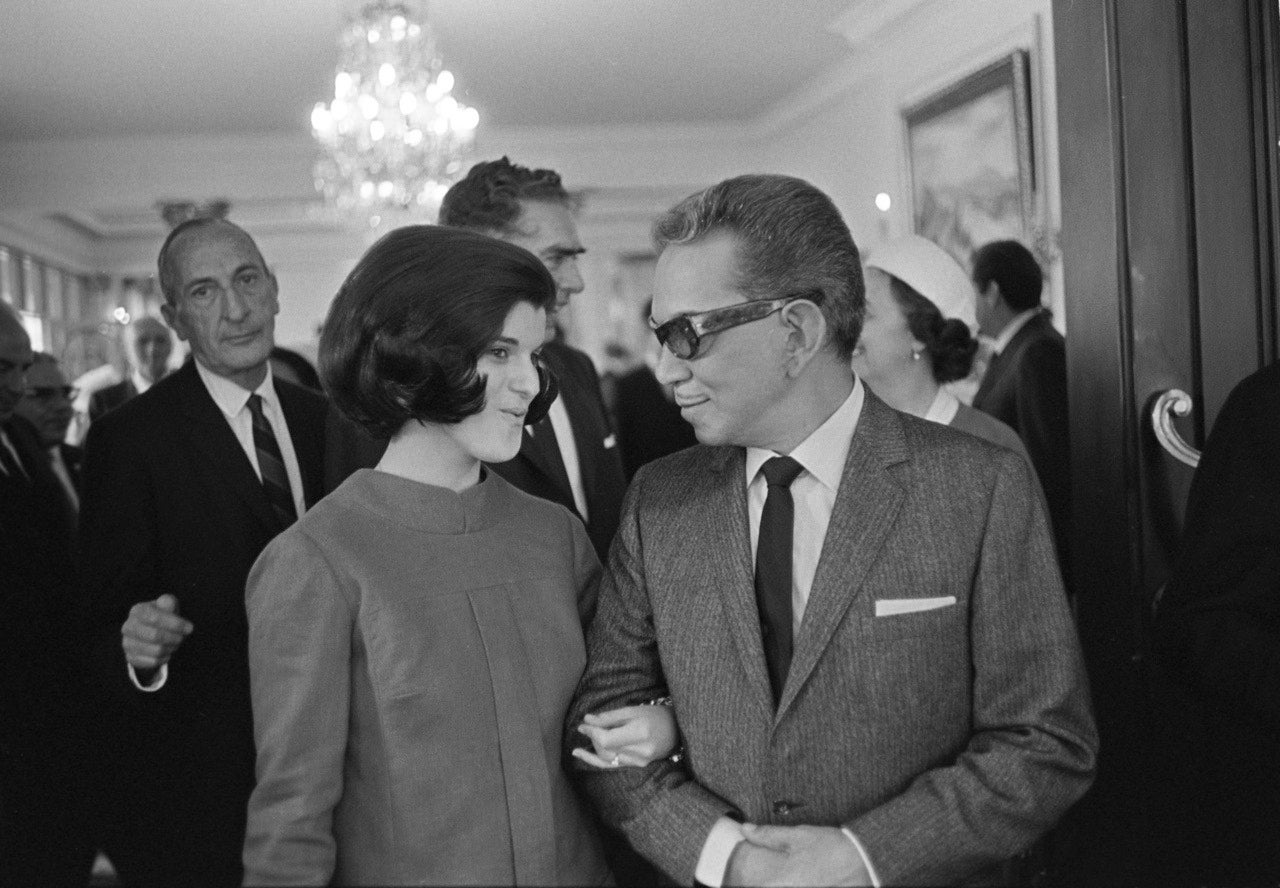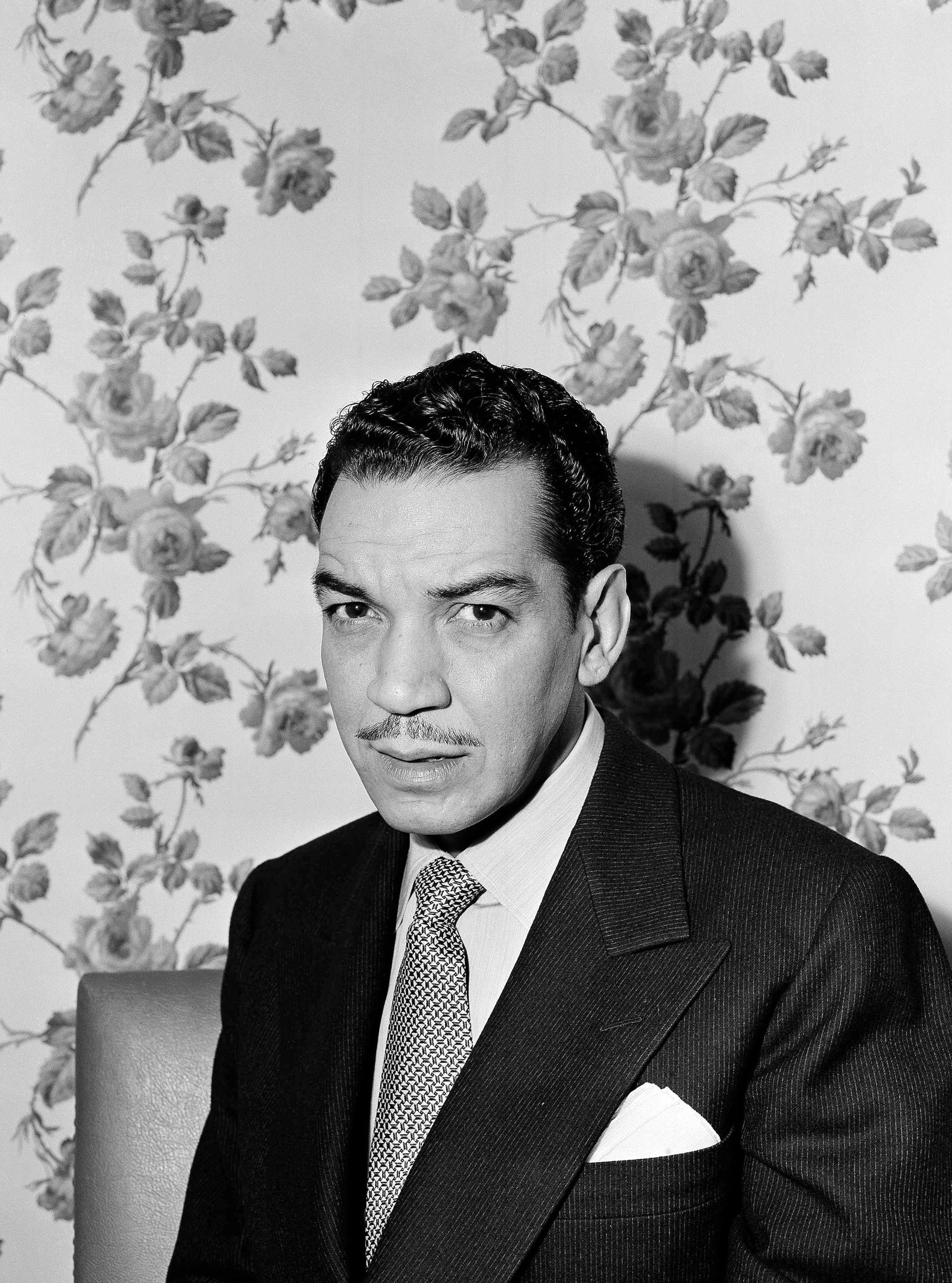That one about the Mexican comedian courted by a US president
The Mexican performer known simply as Cantinflas is said to have been rated “the greatest comedian alive” by Charlie Chaplin, the Hollywood icon once accused of being just that himself.


The Mexican performer known simply as Cantinflas is said to have been rated “the greatest comedian alive” by Charlie Chaplin, the Hollywood icon once accused of being just that himself.
The Google Doodle honors Cantinflas today (Aug. 12) on the 107th anniversary of his birth as Mario Moreno in a Mexico City slum in 1911. He would parlay his comic-acting fortune into a role as a philanthropist, courted in Mexico and across its border with the US by the powerful interests he once satirized. He was associated with US president Lyndon Johnson even before he took office in 1963 and close to Gustavo Díaz Ordaz, Mexico’s president from 1964 to 1970. Critics would come describe the entertainer as a propagandist for the PRI, Mexico’s longtime ruling party, especially in the later decades of his career.
Nonetheless, Cantinflas’s legacy stands as a reminder of a different time in Mexico-US relations, when a Mexican star appeared at the side of an American leader who relied on him to secure votes.

A powerful symbol of a lost time
Like Chaplin’s Little Tramp character, Cantinflas promoted the cause of the poor by adopting an underdog persona, el peladito,”who always, in the end, manages to endure his tribulations,” as the New York Times wrote upon his death in 1993. Starting in the late 1930s, his films earned him millions and made him a cherished figure in Mexico and across Latin America for much of the next four decades. ”Cantinflas represents the humble Mexican who wants to overcome himself and accomplish something in life,” he told an interviewer in 1948. “This is the message of the films.”
The scope of his celebrity makes Cantinflas a symbol of a bygone era in entertainment, when nations and whole continents were enthralled as one by singular, outsized presences. The level of his fame and influence was never more clear than on Nov. 6, 1961.
Cantinflas campaigns in Texas
On that Election Day in the US, Cantinflas rode in the same car through the streets of San Antonio, Texas, with then-vice president Johnson as they campaigned successfully for Henry Gonzalez, who would become the first Mexican-American in the state to win a seat in Congress. Cantinflas’s role in swaying voters was pivotal enough to be noted in Gonzalez’s official House biography. (He served 37 years.)
Four years later, returning to San Antonio as president (pdf), Johnson recalled the day before a huge audience. Cantinflas was there again—along with the estimated 30,000-strong crowd at the massive Los Palmas shopping center when Johnson spoke on Nov. 21, 1965:
With us on that memorable day here in this same place in November 1961, was a very old and very dear friend of mine and a good friend of yours: Cantinflas. He spent the weekend with me and in my home last night, and he came here today to join us again in this reunion. All the world knows Cantinflas as one of the greatest and one of the best loved comedians of all times. But we know him best as a man whose heart always goes out to his fellow man. We know him as a man who believes in human dignity. We know him as a man who has done more to further good relations between the United States and our neighbor to the south, Mexico, than most professional statesmen have done.
A shoutout at the White House
Johnson gave Cantinflas special mention again when he toasted Diaz Ordaz at a White House state dinner on Oct. 26, 1967:
When our friends come here, they come, symbolically, into every American home. And no one could be more welcome in the American home tonight than our neighbor, Mexico.
I should warn you, Mr. President, that there is in our midst a countryman of yours–whose popularity is such, that if he were to run for public office in either country, he might retire both of us to private life. It is our good fortune that Cantinflas prefers to make fun of presidents, rather than run against them. When he does appear on the political scene—as Henry Gonzalez can testify—the effect simply is overwhelming.
With all due respect to Senor Cantinflas and his fellow actors, Mr. President, I think you and I know that there is at least one significant difference between being a president in the movies and actually having the job. As one of our own American comedians, the late Will Rogers, used to say frequently: “Spinning a rope is always a lot more fun when your neck ain’t in it.”
Mr. President, the United States and Mexico are showing the world what good neighbors really can accomplish.
Our common frontier extends almost 2,000 miles. It is without any military defenses. Millions of our citizens cross it each year.
Johnson’s bluster and narcissism were something of a precedent for the behavior of the current occupant of the White House. Still, it’s hard to envision Johnson’s kind of welcome being offered to a Mexican leader anytime soon in the State Dining Room.
Or to imagine a performer having the hold that Cantinflas once exerted on a nation.